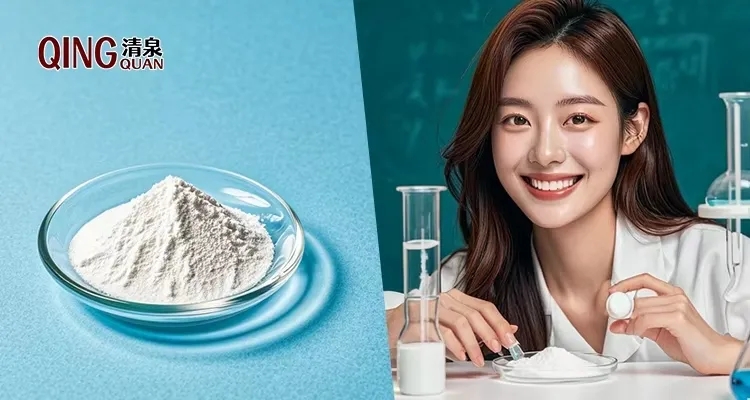Views: 0 Author: Site Editor Publish Time: 2025-06-03 Origin: Site










Hydroxypropylmethylcellulose (HPMC) is an ingredient widely used in various industries, including pharmaceuticals, cosmetics and food. In supplements, it has a variety of uses, such as acting as a binder, disintegrant, or capsule coating. The safety of HPMC in supplements depends on a variety of factors, including its source, purity, dosage, and potential interactions with other ingredients.

HPMC has been approved by the U.S. Food and Drug Administration (FDA) for many applications including the food and pharmaceutical industries. This approval signifies its safety in both the food and pharmaceutical fields. In the field of household chemicals, laundry detergents with HPMC will not cause any harm to our bodies. And when used in industrial products, there will be no unsafe effects as long as the recommended concentrations are observed and the steps of construction are ensured to be in order.
HPMC is generally recognized as safe and non-toxic in terms of its interaction with the human body. When used as a food additive, HPMC is inert in the digestive system and is not digested or absorbed by the gut. Instead, it passes through the gastrointestinal tract unchanged and aids in digestion. When used as a pharmaceutical, HPMC forms a gel-like barrier on contact with gastric juices, slowing the release of the active drug into the body.HPMC is biocompatible, and it does not typically cause an immune response. It is suitable for medical applications such as drug delivery systems and wound care to promote wound healing without causing adverse reactions. When used in cosmetics, HPMC may cause allergic reactions in some people, but this is rare.

Hydroxypropyl methylcellulose (HPMC) is considered safe for use in supplements based on extensive regulatory approvals and toxicology studies. It has been shown to have low toxicity, with no evidence of genotoxicity or carcinogenicity in animal studies. Although some people may experience mild gastrointestinal side effects, these are usually short-lived and not serious. However, as with any supplement, products containing HPMC must be used as directed and consult a healthcare professional if you have any concerns or underlying medical conditions. Overall, if used appropriately, HPMC can be a safe and effort.
Regulatory status and approvals:
HPMC is generally recognized as safe (GRAS) by the U.S. Food and Drug Administration (FDA) for use in foods and dietary supplements. It is also listed as an approved food additive in many other countries, including the European Union, Canada, Australia and Japan. These regulatory approvals are based on extensive safety assessments, including toxicology studies and evaluation of their use in various applications.
Toxicological studies:
A number of toxicological studies have been conducted to evaluate the safety of HPMC. These studies include acute, subchronic and chronic toxicity assessments, as well as genotoxicity and carcinogenicity studies. Overall, these findings suggest that HPMC is safe when consumed within the recommended dosage range.

A study published in the Journal of Applied Toxicology evaluated the acute oral toxicity of HPMC in rats and found no side effects at doses up to 5000 mg/kg body weight (the highest dose tested). In addition, subchronic and chronic toxicity studies show no significant side effects in animals, even at high doses.
Genotoxicity studies also indicate that HPMC is not mutagenic or genotoxic. Carcinogenicity studies have shown no evidence of potential carcinogenicity in animals treated with HPMC.
Potential side effects:
While HPMC is generally considered safe, some people may experience mild side effects, especially when consumed in high doses. These side effects may include gastrointestinal discomfort, bloating, or diarrhea. However, these effects are usually mild and short-lived and disappear once supplementation is stopped or the dose is reduced.
Interactions with other ingredients:
In supplements, HPMC is often combined with other ingredients such as vitamins, minerals, plant extracts, and amino acids. While HPMC itself is unlikely to interact with these ingredients, potential interactions between other components of the supplement must be considered. For example, certain vitamins or minerals may interact with medications or other supplements, causing adverse reactions or reduced effectiveness.
Home | About Us | Products | News | Contact Us | Keyword Index | Keywords | Product Category | Innovation | Insights | Solutions
